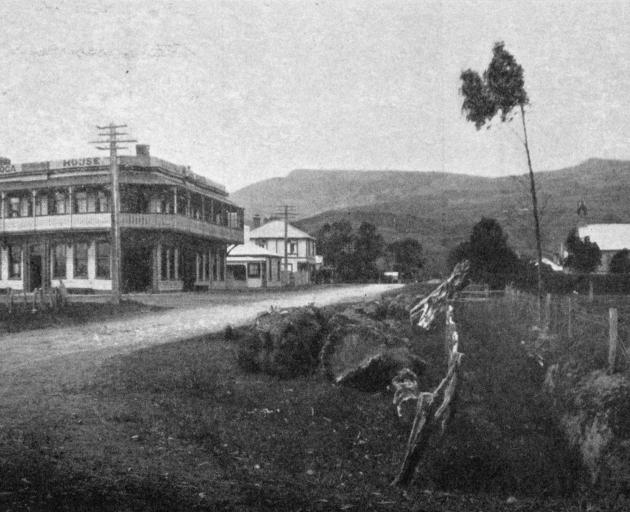
The appellant was serving in the New Zealand Artillery force at the front in France. Questioned by the chairman of the board (Mr W. H. S. Moorhouse) and by his counsel (Mr A. W. Blair), the sufferer said: ''I remember going across from England to France, but after that my mind is practically a blank. I do not remember the name of my commanding officer at the time, nor the date nor place where I was rendered unconscious by the shell shock. When I ''came to'' in hospital in England I did not remember leaving New Zealand. Even now I feel the effects at times, and have to give up work for a spell. Medical officers tell me that in time the strange effects will wear off and my memory and nerves will be restored to a normal state.''
Similar curious effects of injury to the brain by high explosive shock are mentioned; for instance, the memory going back to some slight occurrence long prior to the date of the shell shock - the intervening period of time having become quite a blank.
In the case, however, of young soldiers, otherwise in good health, the strange result in time disappears, and the sufferer recovers his normal condition.
•From time to time lately the public of Dunedin have been informed that the main work under the drainage scheme for the city is practically completed, and it will therefore come as a surprise for most citizens to learn that the Harbour Board offices, Messrs Hogg and Co.'s factory, the Westport Coal and State Coal offices, adjacent to the Birch Street wharf, and in fact, all the area lying on the harbour side from the cross wharf to the overbridge, are not connected with the drainage sewers.
Either earth closets are installed on the premises, or if there is a flushing system the sewage is simply drained into the harbour. The urinals on the wharves in this locality also drain into the harbour. The Harbour Board offices have a flushing system, and in this case, too, the sewage is run into the harbour.
Mr Foote (secretary of the Drainage Board) was asked by one of our reporters why the area referred to had not been linked up with the city system. He stated, in reply, that some three or four years ago applications were received for drainage in this vicinity, but that the board considered at that time that settlement had not sufficiently advanced to warrant the expenditure necessary to reticulate the area. The board was, however, at the present time considering a fresh application.
A remarkable feature in connection with the measures adopted to drain this area - into the harbour - and to which measures the Harbour Board itself is a party, is that, according to the Dunedin District Drainage and Sewerage Act, 1900, Amendment ''Nothing contained in this Act or the principal Act shall be deemed to authorise the Drainage Board to establish any system of drainage for the district, or any part there-of, by which sewage or solid matter of any kind shall be discharged into the Otago Harbour, and in establishing every such system of drainage as aforesaid the board shall be bound to make proper provision for preventing all sewage and solid matter from being discharged thereby into the Otago Harbour.''
Moreover, the Drainage Board has never denied the allegation that on the occasion of heavy rains in Dunedin the sewers are opened in certain parts of the city and the sewage diverted into the stormwater channels, and run into the harbour. The reason given for this breach of the conditions of the Drainage Act is that the engines at the Musselburgh pumping station are not sufficiently powerful to deal with all the water which finds its way into the sewers when a heavy rain occurs.
It only remains to be added that one of the reasons for the installation of a drainage scheme for the city was to prevent further pollution of the waters of the harbour.
- ODT, 16.2.1917
COPIES OF PICTURE AVAILABLE FROM ODT FRONT OFFICE, LOWER STUART ST, OR WWW.OTAGOIMAGES.CO.NZ.












